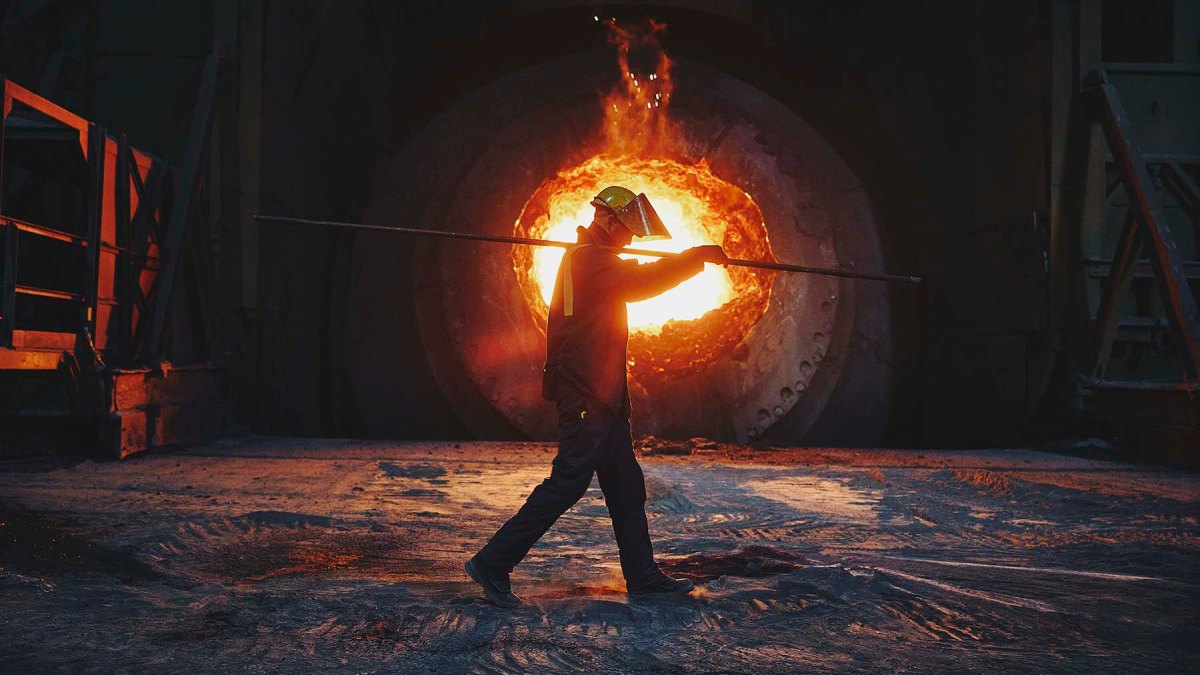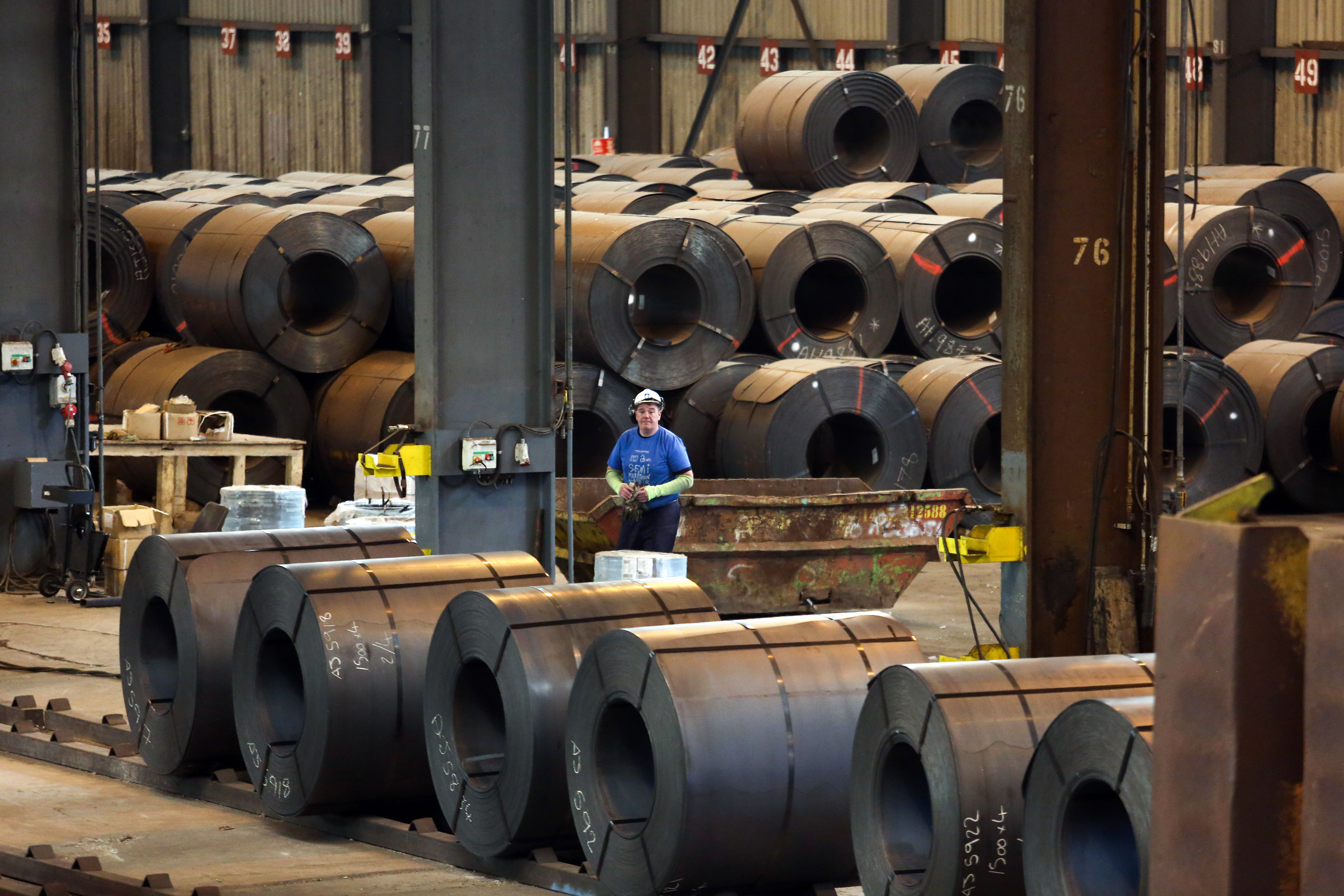The European Union is plotting a “devastating hit” to the UK steel sector by doubling tariffs and halving tax-free quotas on imports from Britain.
The European mainland is a crucial market for British steelmakers with 1.875 million tonnes sold on the Continent last year, 78 per cent of finished exports.
Under a post-Brexit deal that expires in June next year, UK steelmakers benefit from tariff-free quotas, beyond which a 25 per cent import tax is charged. The quotas vary depending on the type of steel product.
Tata’s steelworks at Newport, south Wales produces strip steel for UK and European markets
CHRIS RATCLIFFE/BLOOMBERG VIA GETTY IMAGES
Officials in Brussels now want to halve the quotas and double the tariffs to 50 per cent under pressure from France, Spain, Italy and eight other EU member states. Although the deal has nine more months to run, the changes could come into effect as soon as January, sources said.
The government said that it was “exploring stronger trade measures” such as tariffs on steel from overseas, although the primary focus of these is likely to be directed towards cheaper imports from Asia.
EU steelmakers have long complained that lax border controls mean that they are unable to turn a profit. Axel Eggert, director general of the European Steel Association, has said that he “strongly support[s] this proposal”.
Officials from the UK’s Department for Business & Trade are scrambling to convince their counterparts in Brussels not to implement the changes amid concerns that it could skewer the UK’s already fragile steel industry.
Peter Brennan, director of trade and economic policy at UK Steel, said: “This is a major concern. The EU is by far the UK steel industry’s largest trading partner and the prospect of seeing our exports to that market sliced is potentially a devastating hit.”
The proposed changes threaten to overshadow Sir Keir Starmer’s plan to champion the UK steel sector at the Labour Party conference this week. The prime minister is expected to hail the government’s decision in April to seize control of British Steel from the Chinese group Jingye to protect “virgin” production as well as stepping in to safeguard Sanjeev Gupta’s steelworks in Rotherham after it collapsed into bankruptcy this summer.
Sir Keir Starmer plans to champion the UK steel sector at the Labour Party conference this week
PETER BYRNE/POOL/REUTERS
The spectre of renewed EU protectionism comes as British steelmakers reel from Donald Trump’s imposition of a 25 per cent blanket tariff on steel imports to the US.
It also comes amid concerns that the UK could next year become a dumping ground for cheaper overseas steel imports from China and India.
The EU’s Carbon Border Adjustment Mechanism (CBAM) comes into force at the start of next year. It will slap high tariffs on steel and other products made using carbon-intensive methods. The UK has a similar version of CBAM scheduled to come into force, but not until 2027. The fear is that for 12 months this will leave Britain open to an influx of cheaper, high-carbon, imports.
Brennan said: “There is a clear direction of travel globally towards protectionist measures as the countries that cannot compete with the subsidies doled out by governments in China and other parts of east Asia must choose to either implement strict trade defence measures or de-industrialise.
“The potential for the EU to severely restrict imports reinforces UK Steel’s argument that the UK government must take its own trade measures to protect our industry.”
The government refused to comment on negotiations on EU tariffs.
A spokesman said: “We are backing a bright future for British steelmaking, committing up to £2.5 billion of investment to rebuild the steel industry and exploring stronger trade measures to protect UK steel producers from unfair behaviours.”


